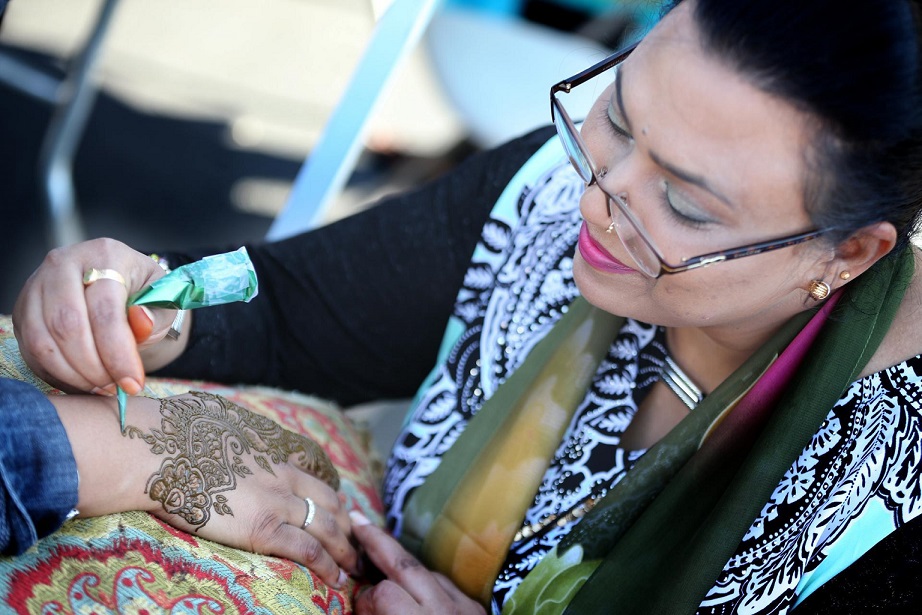MALDEN – Syrian music, mixed with smells of shawarma and samosas, filled the air Sunday afternoon as thousands of Muslims and non-Muslims flocked to attend Malden city’s second Islamic festival.
“Just come hang out with a Muslim,” said Malika MacDonald, an organizer of the second annual New England Muslim Festival and director of the Massachusetts field office of ICNA Relief, a disaster aid agency, Boston Globe reported.
“Realize we’re human, too.”
Presented in partnership with the city of Malden and Cambridge Health Alliance, the second annual New England Muslim Festival was attended by thousands on Sunday noon.
The event was designed to allow people to ask questions about Islam, yet MacDonald stressed, “this is not a religious festival; it is a cultural festival.”
“There is an educational purpose for people to come and explore Muslim cultures, to see that we have fun just like everyone else,” MacDonald said.
“We eat, we party just like everyone else.”
Malden resident Naomi Brave came to the festival with her husband, Clay Larsen, and got a temporary henna tattoo on her hand.
“I think it’s beautiful,” said Brave, 55, as she admired the elaborate, hand-painted design.
“It’ll be interesting to go back to work on Monday with this.”
Brave said she returned to the festival for a second year “to learn about my Muslim neighbors, get some good food, and hear some good music.”
While Brave and Larsen saw the event as a chance to explore Islamic culture, Muslim visitors, like Souad Belkessa, saw it as a chance to connect with old friends from the city’s sprawling Muslim community.
“I see a difference when I go out of state, but not in Malden,” she said. “That’s why I love it here. Nobody treats us any different.”

Noureen from Noureen Design in Framingham did a henna painting on a festival-goer’s hand.
Celebrating Culture
In one booth, Weymouth resident Hajj Wafaa, 45, introduces visitors to Arabic calligraphy, executing their Arabicized names in elegant swoops and dashes of ink.
“I believe the arts can put people together, regardless of ethnicity, religion, or faith,” said Wafaa, who left Iraq as a refugee during the Gulf War in 1991 and came to the United States in 1997.
“The message of me as an artist in the world is ‘Let’s come together . . . let’s care about each other.’ ”
In another booth for Muslim Love Clothing Co., Ayesha Kazmi and her husband, Jay Kelly, showed off T-shirts and baby onesies.
“Everything is so much about countering hate, countering Islamaphobia,” said Ayesha Kazmi, 41, of Dorchester, whose parents immigrated from Pakistan in the 1960s.
“We’re just up for celebrating our Muslim identity and being proud of it.”
One shirt included a cat with a red ribbon and the words “Halal Kitty” instead of “Hello Kitty.” Another shirt said “Radical Islam” and featured an illustration of a woman on a skateboard in a burqa.
In a wink toward the Trump administration, a red shirt said: “Make America Great Insha’Allah,” which means, “God willing,” in Arabic.
Qasim Muhammad, 64, and his wife brought their 6- and 7-year-old sons to the event with a specific and important purpose: “They were born and raised here. They’re American citizens. I want them to feel this is their home and their city.”